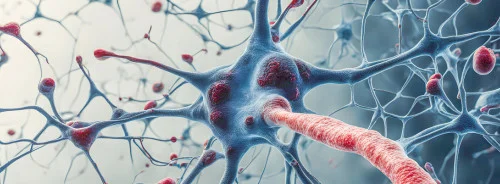In today’s healthcare industry, the pursuit of providing a superior customer experience (CX) has become a top priority for business, clinical, and IT leaders. However, the delicate balance between delivering exceptional CX and maintaining operational efficiency is a significant challenge. The pressure to meet the needs of both patients and employees has intensified, particularly as customer expectations continue to rise. Despite these challenges, only a few organisations have managed to successfully enhance their CX. This article will delve into how healthcare organisations can elevate CX by focusing on contact centre solutions, contextual data analytics, and integrating artificial intelligence (AI) and automation.
Contact Centre Solutions: A Critical CX Tool
Healthcare contact centres extend far beyond traditional customer support services, encompassing various interactions, such as billing inquiries, scheduling appointments, and coordinating patient care. As such, they serve as a critical touchpoint for delivering excellent CX. Communication Platform as a Service (CPaaS) solutions, like Webex Connect, can elevate these centres by integrating advanced technologies such as AI-driven voice bots and enhanced video and audio features. These tools streamline interactions, reducing background noise and ensuring clear communication, which is essential in healthcare settings where clarity is crucial.
Moreover, by automating certain tasks, such as routine inquiries and appointment scheduling, healthcare organisations can free up staff to focus on more complex patient needs. This not only improves patient satisfaction but also reduces the risk of staff burnout, providing a sense of relief to healthcare leaders. Contact centres, equipped with CPaaS platforms, can significantly enhance the overall CX by ensuring that every interaction—whether with a nurse, billing representative, or customer service agent—feels seamless and efficient.
Contextual Data Analytics: Personalised CX at Scale
Personalisation is a crucial element in delivering a high-quality customer experience, and contextual data analytics plays a significant role in making this possible. By harnessing the power of data analytics, healthcare organisations can equip their agents with detailed, relevant information about patients or customers. For instance, an agent handling a patient inquiry can access the individual’s appointment history, medication details, or preferred healthcare provider. This context allows for more informed conversations and quicker resolutions, thereby reducing the need for patients to repeat themselves or wait on hold for extended periods.
In addition to improving patient satisfaction, contextual data analytics enables organisations to address potential issues proactively. For example, if a patient’s medication is delayed, the system can notify the agent beforehand, allowing them to offer alternative solutions during the call. This resolves issues faster and enhances the overall CX by demonstrating attentiveness to patient needs. By sharing data across different communication channels, healthcare organisations can create a cohesive and personalised experience that makes patients feel valued and understood.
AI and Automation: Streamlining CX and Reducing Errors
Manual processes in healthcare can often lead to frustration, both for patients and employees. Delays, mistakes, and inefficiencies are common when tasks are handled manually. AI and automation can significantly improve this by streamlining workflows, reducing errors, and enhancing overall productivity. AI tools can analyse previous interactions and predict the purpose of a patient’s call, enabling agents to resolve issues more efficiently. This creates a smoother and faster experience for patients, who no longer need to provide repetitive information or endure long wait times.
Additionally, AI-powered chatbots and virtual assistants can handle routine queries, such as checking appointment availability or answering common questions, reducing the load on human agents. However, while automation is improving, there will always be cases where patients prefer to speak with a live agent. AI systems must be designed to quickly transition calls to human agents when necessary, ensuring that patients never feel stuck or neglected. As generative AI continues to evolve, it is poised to bring an empathetic touch to interactions, enhancing CX by showing care and concern during sensitive situations, such as health emergencies.
Conclusion
Improving customer experience in healthcare requires a multifaceted approach that leverages advanced technology, data-driven insights, and human empathy. When enhanced with CPaaS platforms, contact centre solutions offer a more efficient way to handle patient interactions, while contextual data analytics provide the personalised experience that modern patients expect. Additionally, AI and automation can streamline workflows and reduce errors, helping healthcare organisations deliver faster, more accurate service. As healthcare leaders strive to meet the growing expectations of patients and employees, these tools and strategies will be essential in elevating CX to new heights.
Source: HealthTech Magazine
Image Credit: iStock






